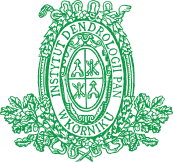Research focus:
Stress response in plants, also in the context of mycorrhizal interactions and adaptation processes.
I specialise in analysing molecular grounds for abiotic stress response in plants and the molecular grounds for plant interactions with mycorrhizal fungi.
Also, my research interests include the molecular grounds for plant acclimatisation and adaptation in unfavourable environmental conditions.
In my studies, I use a wide range of research models, from suspension plant cell cultures, through plants cultivated in vitro, ex vitro, to plants growing in natural conditions. In my studies, I focus on biochemical analyses, in particular on the analyses of metabolome and proteome of plants and fungi.
Keywords:
proteomics, metabolomics, adaptation, abiotic stress (osmotic stress, heavy metal stress), mycorrhiza
Publications
- Maitra P., Hrynkiewicz K., Szuba A., Jagodziński A.M., Al-Rashid J., Mandal D., Mucha J. 2024. Metabolic niches in the rhizosphere microbiome: dependence on soil horizons, root traits and climate variables in forest ecosystems. Frontiers in Plant Science 15: 1344205. https://doi.org/10.3389/fpls.2024.1344205
- Maitra P., Hrynkiewicz K., Szuba A., Niestrawska A., Mucha J. 2024. The effects of Pinus sylvestris L. geographical origin on the community and co-occurrence of fungal and bacterial endophytes in a common garden experiment. Microbiology Spectrum https://doi.org/10.1128/spectrum.00807-24
- Szuba A., Ratajczak E., Leski T., Jasińska A., Hanć A., Piechalak A., Woźniak G., Jagodziński A.M. 2023. Physiological response of adult Salix aurita in wetland vegetation affected by flooding with As-rich fine pyrite particles. Science of the Total Environment 865: 161197. https://doi.org/10.1016/j.scitotenv.2022.161197
- Szuba A., Kalemba E.M., Wawrzyniak M.K., Suszka J., Chmielarz P. 2022. Deterioration in the quality of recalcitrant Quercus robur seeds during six months of storage at subzero temperatures: Ineffective activation of prosurvival mechanisms and evidence of freezing stress from an untargeted metabolomic study. Metabolites 12(8): 756. https://doi.org/10.3390/metabo12080756
- Szuba A., Marczak Ł., Kozłowski R. 2021. Pb stress and ectomycorrhizas: Strong protective proteomic responses in poplar roots inoculated with Paxillus involutus isolate and characterized by low root colonization intensity. International Journal of Molecular Sciences 22: #4300 doi: 10.3390/ijms22094300.
- Szuba A., Marczak Ł., Kozłowski R. 2020. Role of the proteome in providing phenotypic stability in control and ectomycorrhizal poplar plants exposed to chronic mild Pb stress. Environmental Pollution 264: #114585. https://doi.org/10.1016/j.envpol.2020.114585
- Szuba A., Marczak Ł., Ratajczak I. 2020. Metabolome adjustments in ectomycorrhizal Populus × canescens associated with strong promotion of plant growth by Paxillus involutus despite a very low root colonization rate. Tree Physiology 40(12): 1726-1743. https://doi.org/10.1093/treephys/tpaa100
- Szuba A., Marczak Ł., Ratajczak I., Kasprowicz-Maluśki A., Mucha J. 2020. Integrated proteomic and metabolomic analyses revealed molecular adjustments in Populus × canescens colonized with the ectomycorrhizal fungus Paxillus involutus, which limited plant host growth. Environmental Microbiology 22(9): 3754-3771. https://doi.org/10.1111/1462-2920.15146
- Szuba A., Marczak Ł., Karliński L., Mucha J., Tomaszewski D. 2019. Regulation of the leaf proteome by inoculation of Populus × canescens with two Paxillus involutus isolates differing in root colonization rates. Mycorrhiza 29: 503-517. https://doi.org/10.1007/s00572-019-00910-5
- Szuba A., Lorenc-Plucińska G. 2018. Field proteomics of Populus alba grown in a heavily modified environment – An example of a tannery waste landfill. Science of the Total Environment 610–611: 1557-1571. http://dx.doi.org/10.1016/j.scitotenv.2017.06.102.
- Szuba A., Karliński L., Krzesłowska M., Hazubska-Przybył T. 2017. Inoculation with a Pb-tolerant strain of Paxillus involutus improves growth and Pb tolerance of Populus × canescens under in vitro conditions. Plant and Soil 412: 253-266. https://doi.org/10.1007/s11104-016-3062-3
- Szuba A. 2015. Ectomycorrhiza of Populus. Forest Ecology and Management 347: 156-169. https://doi.org/10.1016/j.foreco.2015.03.012
- Szuba A., Kasprowicz-Maluśki A., Wojtaszek P. 2015. Nitration of plant apoplastic proteins from cell suspension cultures. Journal of Proteomics 120: 158-168. https://doi.org/10.1016/j.jprot.2015.03.002
- Szuba A., Lorenc-Plucińska G. 2015. Utilization of proteomics in experimental field conditions — A case study of poplars growing on grassland affected by long-term starch wastewater irrigation. Journal of Proteomics 126: 200-217. http://dx.doi.org/10.1016/j.jprot.2015.06.002
- Szuba A., Wojakowska A., Lorenc-Plucińska G. 2013. An optimized method to extract poplar leaf proteins for two-dimensional gel electrophoresis guided by analysis of polysaccharides and phenolic compounds. Electrophoresis 34: 3234-3243. https://doi.org/10.1002/elps.201300223
Projects
- Why cells become smaller to survive? Analysis of tobacco BY2 cells adapted to osmotic and salt stress in the search of key regulatory factors between energy management, molecular homeostasis and the size of the chronically stressed plant cells. (Original title: Dlaczego komórki stają się mniejsze, aby przeżyć? Analiza komórek tytoniu BY2 zaadaptowanych do warunków stresu osmotycznego i solnego w poszukiwaniu kluczowych czynników regulujących gospodarkę energią, molekularną homeostazę i wielkość komórek). Project funded by the National Science Centre (OPUS, 2020/39/B/NZ9/03336). Project duration: 2021–2026. Principal Investigator: Szuba A.
- Changes in N-metabolism of Mycelium from different genotypes of Paxillus involutus, collected from Locations selected based on mean annual temperatures, in response to growth at low temperature - an in vitro. (Original title: Zmiany N-metabolizmu grzybni różnych genotypów Paxillus involutus, pozyskanych z lokalizacji wytypowanych na podstawie średnich rocznych temperatur, w odpowiedzi na wzrost w niskiej temperaturze - eksperyment in vitro). Project funded by the Internal Research Fund of the Institute of Dendrology, Polish Academy of Sciences (FBW_3, DEC-2022/03/ZB/FBW/00006). Project duration: 2022–2023. Principal Investigator: Szuba A.
- Analysis of the impact of ectomycorrhizal fungi on the tolerance of poplar Populus x canescens to the lead - the proteomic and metabolomic approach. (Original title: Analiza wpływu ektomikoryz na tolerancję topoli Populus x canescens na ołów wykonana metodami proteomicznymi i metabolomicznymi). Project funded by the National Science Centre (UMO-2011/03/D/NZ9/05500). Project duration: 2012-2017. Principal Investigator: Szuba A.
Public Science Articles
- Szuba A. 2024. Uff... jak gorąco i duszno. Las Polski 3; 18-20.
- Szuba A. 2020. Jak „ekologicznie” pozbyć się metali ciężkich i innych zanieczyszczeń ze skażonego środowiska – czyli do czego służy fitoremediacja. Przegląd Leśniczy 8: 7-9.
- Szuba A. 2020. Jak drzewa odpowiadają na stres? Las Polski 15-16: 18-20.
- Szuba A. 2020. Metody fitoremediacji wykorzystywane w rekultywacji terenów skażonych metalami ciężkimi. Przegląd Leśniczy 9: 26-27.
Books and Book Chapters










